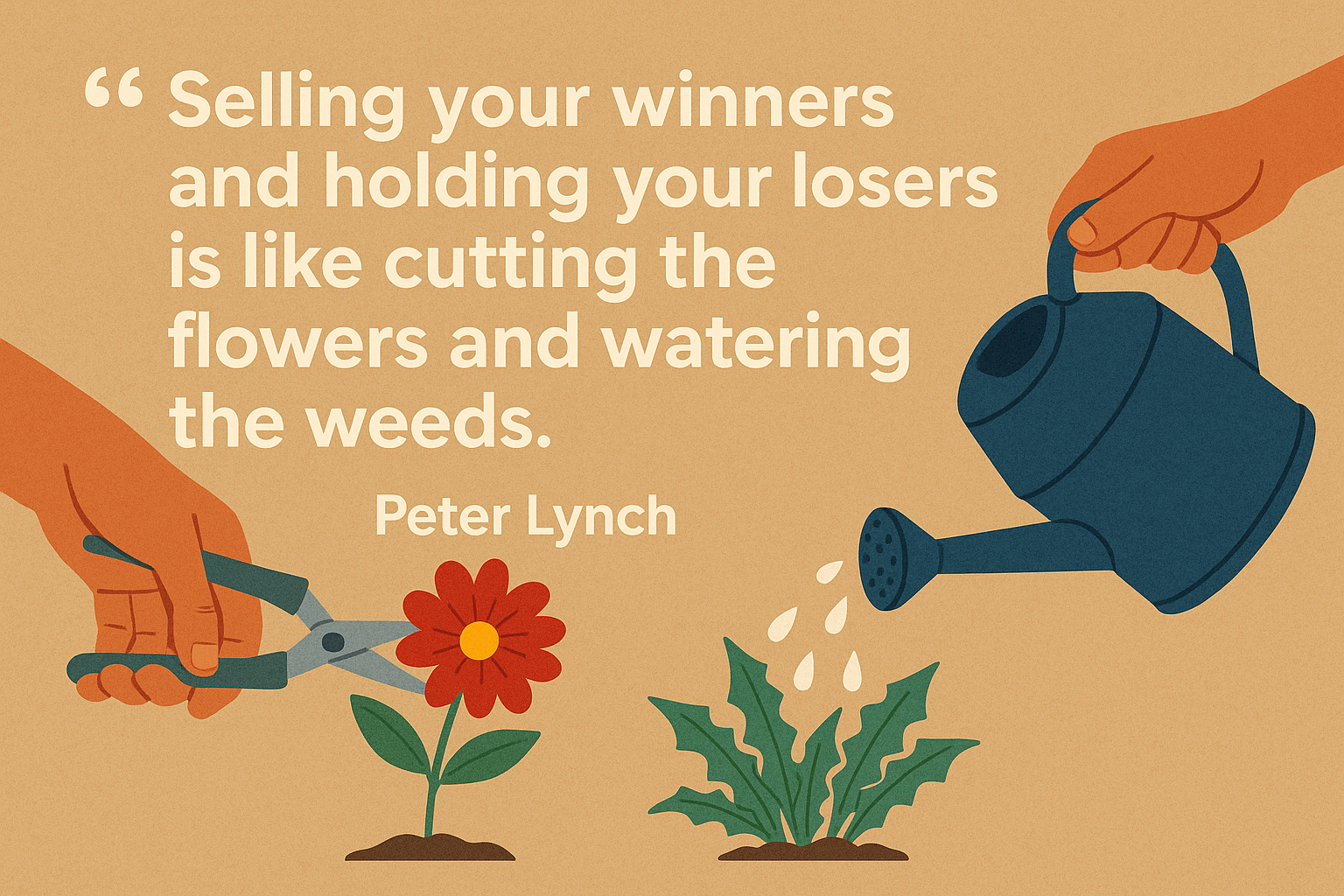A reader asks:
I have some stocks with big moves up since April. I’m curious if you have a rule of thumb for selling stocks making big increases in a short period of time. I hold the majority of my portfolio in index funds, but like to buy some individual stocks I’ve got high conviction on. Most I like to hold for a longer period of time, but for some that are more volatile, I tend to trade more short term and put the gains into my index fund positions. I know there are tax implications here, but ultimately I know I won’t be upset about taking a double digit profit over a time period of a month or two.
Another reader asks:
Given the recent runup, I’m finding several of my 5 individual stock holdings have grown past the
There are countless books on how to buy stocks.
I’ve never come across a useful book that tells you when to sell.
One of my favorite scenes in A Few Good Men is when they put a young Noah Wylie on the stand to be questioned by Tom Cruise and Kevin Bacon:
[embed]https://www.youtube.com/watch?v=N16YkjFVAyE[/embed]
A Code Red or directions to the mess hall are not in the handbook.
Neither is when to perfectly time the sale of a stock.
Understanding when to sell a stock is not a science.
A small number of stocks account for the vast majority of stock market gains. Many stocks falter and fail ever to reach their previous highs. While stock-picking is hard, there are clear examples where owning individual names has paid off handsomely — Nvidia, Amazon, Apple, Microsoft to name a few.
This is one of the reasons buy & hold is an easy strategy in name only. It’s really difficult to buy and hold because fast gains and swift losses can cause you to question even your strongest held investment views.
Things are even more amplified when owning individual stocks.
The idea of placing position size limits on your portfolio make sense because it forces you to rebalance when the position gets too high or too low.
But some people might quibble with this strategy. Peter Lynch says, “Selling your winners and holding your losers is like cutting the flowers and watering the weeds.”
This makes sense to me. Rebalancing among asset classes or investment strategies makes a lot more sense than doing so with stock picks.
The thing is you do need some sell discipline otherwise you’re investing like a rudderless ship.
There are lots of different ways you could sell your stocks.
Some people make short-term trades. Some are looking for consistent dividends. Some are looking at technical or momentum indicators. Some invest purely on valuations.
Some people plan to buy and hold.
You generally don’t want an investment to turn into a trade unless the short-term gains are so large that it forces your hand.
Here’s the most important question to ask when thinking through when it’s time to sell a stock:
Why did you buy the stock in the first place?
Is it a trade or an investment?
Do you have a price or return target in mind?
What would cause you to change your mind about the stock?
What is your time horizon?
Do you cut your losers short or lean into the pain and buy more when the stock is on sale?
You could set stop losses but individual stocks are volatile so you could get stopped out of a stock you want to hold for the long run.
You could sell when a stock becomes too expensive but valuations are often unreliable as timing indicators.
You could sell when your thesis has changed but that requires coming up with a legitimate fundamental thesis to begin with.
The truth is knowing when to sell a stock is more art than science.
This is why beating the market is hard.
No one ever went broke taking a profit but no one ever got rich selling early either.
The biggest thing is you have to define what you’re looking for from a stock before you buy it, not after.
It’s impossible to know when to sell a stock if you don’t have a plan before you buy it.
Josh Brown joined me on Ask the Compound this week to discuss these questions:
[embed]https://www.youtube.com/watch?v=8pi-lBUPGng[/embed]
We also answered questions about what to do with an inheritance, how to invest in middle age and some career advice for a young advisor.
Further Reading:
The Best Time to Sell Your Stocks
Disclaimer: This story is auto-aggregated by a computer program and has not been created or edited by finopulse.
Publisher: Source link







